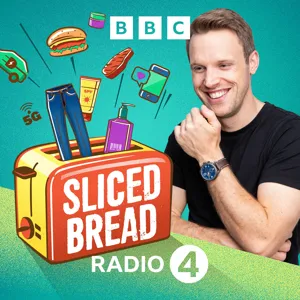Podcast Summary
Refrigerator Innovations: Manufacturers have focused on size, design, and smart connectivity to refresh refrigerators while cultural preferences and specific needs influence their offerings. Retro refrigerators, larger fridge-freezers, and wine coolers are currently popular.
While the fundamental technology of refrigerators has remained relatively unchanged for centuries, manufacturers have resorted to less costly innovations to refresh their products, such as size, design, and smart connectivity features. Additionally, refrigerators can vary greatly depending on cultural preferences and specific needs, with some countries having refrigerators dedicated to certain foods like kimchi in South Korea. Currently, there is a strong demand for retro refrigerators and larger fridge-freezers, as well as an increase in sales of wine coolers due to the pandemic and people staying at home.
Refrigerator Design Evolution: Design has evolved from functional appliances to furniture pieces, but energy efficiency and connectivity are also important considerations when purchasing a new fridge, as a new fridge's energy efficiency may decrease over time.
Smaggy's most notable innovation in refrigeration is its stylish design, which transformed fridges from functional appliances to furniture pieces in the late 1990s. Consumers today prioritize design, energy efficiency, and connectivity features when purchasing new fridges. However, it's important to note that a new fridge may not maintain its original energy efficiency after manufacturing and shipping, potentially dropping an energy efficiency class within the first year. Therefore, it's crucial for consumers to consider these factors when choosing a new fridge freezer. Another interesting fact is that fridges from the 1980s had more compartments and gadgets, but some of these features were considered gimmicks and led to simpler designs in modern refrigerators.
Refrigerator innovations: Consider energy efficiency, size, inverted technology, sensors, and refrigerator cameras when purchasing a refrigerator. Innovative filters may offer future benefits.
When purchasing a refrigerator, it's essential to buy an energy-efficient model and consider the appropriate size for your household. The most game-changing innovation in refrigerators is the inverted technology, which enables more precise temperature control, increased efficiency, and a quieter operation. On the other hand, some innovations, such as Wi-Fi connectivity and automatic door opening, have been considered pointless or least effective by some consumers. However, sensors and refrigerator cameras have proven to be useful tools for monitoring and controlling temperature and managing food inventory. Looking to the future, innovative filters like Smeg's Aria air filter, which eliminates pollution and helps food maintain vitamins and freshness for longer, could provide significant benefits for consumers.
Modular refrigeration designs, indoor gardening: Modular refrigeration designs could lead to cost savings and reduced waste, while indoor gardening with automated systems offers maximum flavor, reduced food waste, and potential for mass market adoption.
The future of refrigeration may involve modular designs, allowing for easy replacement or upgrading of components. This could lead to significant cost savings and reduced waste. Meanwhile, companies like Evagro are innovating in the field of indoor plant growing, offering a solution for those who lack the space, know-how, or time for traditional gardening. Their automated systems ensure maximum flavor and nutritional value, while also reducing food waste and emissions. Although currently expensive, they see potential for mass market adoption as more people adopt plant-based diets and seek better quality produce. The future of refrigeration and indoor gardening may intersect, offering consumers more control and convenience in their food production.
Indoor food production: Indoor food production using advanced methods may bring nature indoors, reduce need for store-bought produce, save space, and lead to more sustainable and self-sufficient food production at home.
The future of food production may involve growing vegetables and other produce indoors using technologically advanced methods. Companies like the one discussed in the conversation are already exploring this idea, creating prototypes that monitor temperature, humidity, and nutrient levels to help grow fresh produce at home. This trend could become more popular in the future due to the potential benefits, such as bringing a bit of nature indoors, reducing the need for expensive store-bought produce, and potentially even saving space. Additionally, the way we keep food cold may also change, with more efficient and quiet methods being developed to replace traditional refrigeration methods. Overall, these advancements could lead to a more sustainable and self-sufficient way of producing food in our homes.
Smart Glasses and Food Waste Reduction: Smart glasses technology can reduce food waste by providing real-time inventory and expiration date information, and offering recipe recommendations based on available ingredients.
Technology, specifically smart glasses, has the potential to significantly reduce food waste by keeping track of what's in the fridge and providing real-time inventory and expiration date information to consumers. This innovation addresses common issues of forgetting what's already in the fridge before shopping and reducing the amount of food that goes to waste. The discussion also touched upon the potential of smart glasses to provide recipe recommendations based on the available ingredients, making meal planning more efficient and reducing food waste even further. This innovation not only benefits consumers but also contributes to a more sustainable food system.
